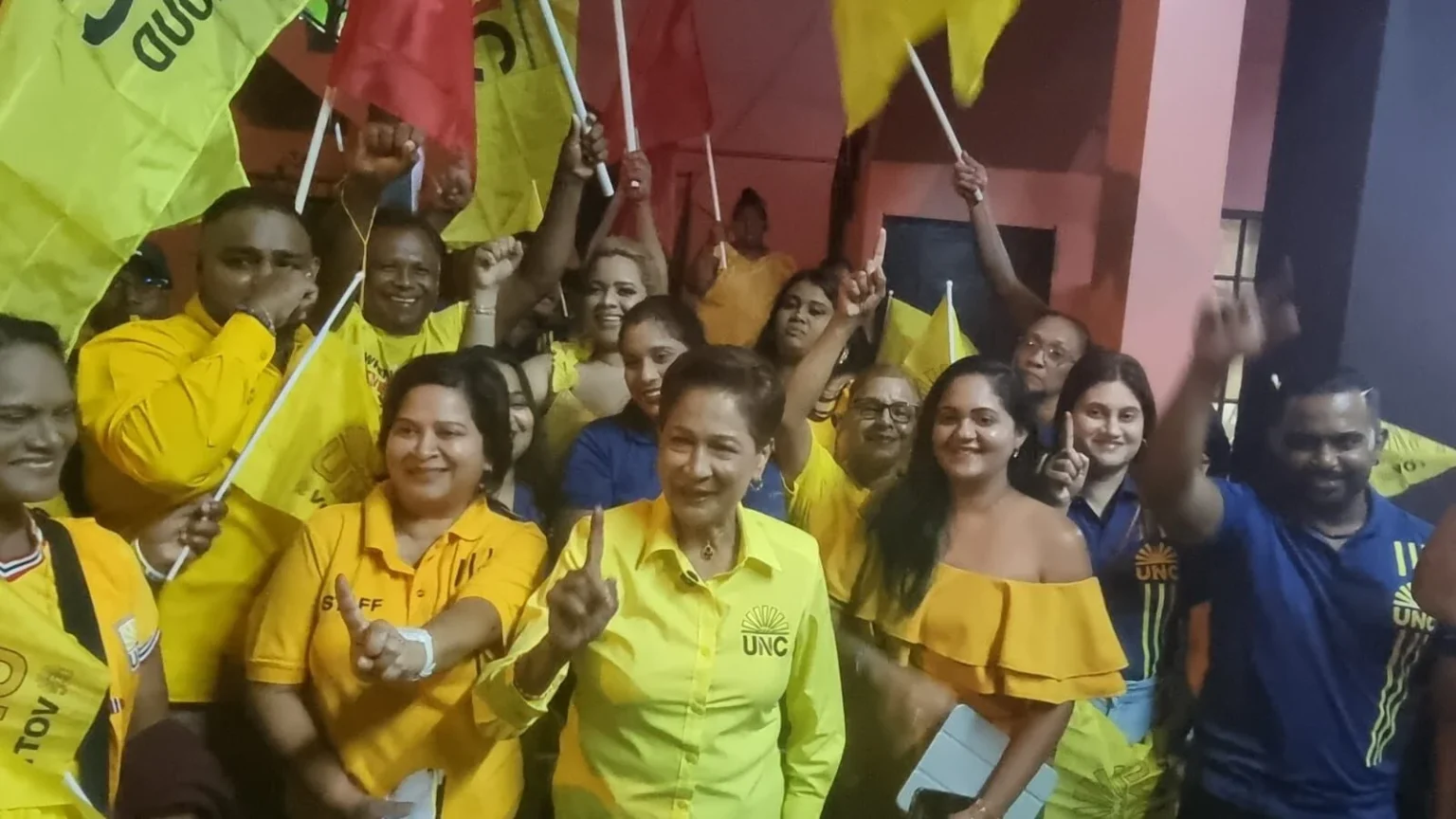“Tonight is not a good night for the PNM, but it might be a good night for the people of TT,” were the opening remarks from the political leader of the People’s National Movement, Keith Rowley, as he conceded the general elections last night.
He was accompanied by outgoing Prime Minister Stuart Young, who made history by serving the shortest stint ever as Prime Minister of Trinidad and Tobago—six weeks—and the party’s deputy political leader, Rohan Sinanan.
Expressing satisfaction with the conduct of the elections, Rowley highlighted that “Things have gone very well with the processes. The results are coming in now, but from what we have coming into Balisier House, it would appear that we have lost the election.” He noted that losing elections is not new to the party, “We conceded in 1986, we conceded in 1995, and we conceded in 2010, so, in this 70-year-old party, sometimes you win and sometimes you don’t win. We have come back from one seat, so ten to 12 seats, don’t count us out.”
Stuart Young said that he has no regrets about the campaign he led over the election season and that he remains committed to his party, remaining in leadership contention, and fighting on Trinidad and Tobago’s behalf. Having retained his seat, he will be part of the formidable parliamentary opposition for the people. Outgoing Prime Minister Young, speaking from Balisier House, stated, “We expect between ten and thirteen seats. PNM is not dragging the country along; the people have spoken.”
Notably, the Tobago Peoples Party flipped the seat Rowley vacated. They swept Tobago as part of the Kamla-led UNC coalition.

UNC political leader and Prime Minister-elect Kamla Persad Bissessar first declared victory in the 2025 general election when she spoke from her constituency office, before departing for the party’s headquarters. While not making any specific declarations, she indicated that her party had held its nineteen seats and was flipping seats held by the PNM, including the two in Tobago. She was clear in her initial response, “From all indications, the UNC has won the elections. Do not become boastful and arrogant, we have a lot of work to do. God bless all of you.”
UNC’s victory came during a season when political leader Kamla Persad-Bissesar faced challenges from dissident MPs and from the outside by discarded former UNC political insiders externally. Kamla, Prime Minister from 2010 to 2015, led the UNC to a narrow defeat in the 2020 general elections, held her coalition together, capitalized on declining voter confidence in the ruling administration, and delivered a crushing victory. The Kamla-led UNC correctly gauged the national disaffection with the ruling administration and created a groundswell message demanding reform and accountability. Major stakeholders, including trade unions, joined the call for economic reform and the urgent need to re-energise the national economy while addressing high crime and rising cost of living.
An energised UNC worked with a sense of urgency and readiness that spoke to a quick awakening and readiness for the snap election. An effective social media and fete-style, carnival spirit ground campaign resulted in the re-energisation of voters in their favour, turning marginal seats into the party’s column.
The UNC victory was beyond the expectations of polls and political pundits. It is a story of the resilience of the leadership of the UNC, in the face of a narrow two-seat defeat, holding on and constantly delivering their message, making the best of the conditions on the ground. In addition to the big picture of spiralling crime and inflation, there were constituency and community challenges: community-based anger over infrastructure neglect and being taken for granted translated into voters in marginal seats voting against the government, and voters in some traditional garrison communities either staying away from the polls or voting against the usual pattern.
Another peaceful general election and a smooth transfer of power continued to be testaments to the enshrined value of democratic values and the importance of ‘the power of the people’ as part of Caribbean life. Some would challenge the impact of the existing first-past-the-post, five-year term political cycle on our long-term, national economic planning and development. The journey continues to build sustainable economies to serve the people of the Caribbean while we remain standard bearers of our democratic principles.
Congratulations to the people of the Republic of Trinidad and Tobago and incoming Prime Minister Kamla Persad-Bissessar and her administration.

